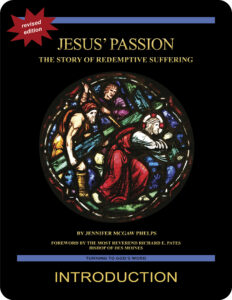imprimatur & nihil obstat
 At one of our Turning to God’s Word retreats, we discussed the meaning of imprimatur and nihil obstat in Latin and in Church usage, and it seemed as though readers would appreciate a Lost in Translation post on the topic.
At one of our Turning to God’s Word retreats, we discussed the meaning of imprimatur and nihil obstat in Latin and in Church usage, and it seemed as though readers would appreciate a Lost in Translation post on the topic.
The Latin phrase nihil obstat literally means “nothing obstructs.” It only can be granted by an appointed reader or censor from the Church and indicates that there’s no reason on the basis of theological or moral grounds that a work cannot be printed. The nihil obstat represents the first phase in printing a work with full Church approval.
Likewise, imprimatur is a Latin word meaning “it may be printed.” The imprimatur is granted by the bishop of the diocese of publication and represents a conclusion of the process and authorization to print the work with the Church’s blessing.
Importantly, neither of these allowances indicates that the Church or readers agree with all content in the work. They indicate, rather, that there’s no content in direct opposition to Church teaching on matters of faith and morals.
Turning to God’s Word chooses to submit our works for this review process to ensure that nothing in our interpretations will dangerously mislead any of our study participants. Even when our studies contain these approvals, it’s worth keeping in mind as a participant that you aren’t obliged to agree with every one of our interpretations. The responsibility not to promote any interpretation that flies in the face of Scripture or Church teaching, however, weighs on every Catholic.
you also may like our free Lenten study of Jesus’ Passion (digital only)
 Jesus’ Passion: The Story of Redemptive Suffering is a five-lesson Catholic Bible study offering an in-depth look at the biblical foundations of the movie The Passion of the Christ. This revised study, which has been granted an imprimatur, contains all of the original material of the 2004 edition as well as many new features in an improved, reader-friendly format. Click on the book’s cover to view the introduction. Free digital lessons of Jesus’ Passion: The Story of Redemptive Suffering are available on the website during Lent.
Jesus’ Passion: The Story of Redemptive Suffering is a five-lesson Catholic Bible study offering an in-depth look at the biblical foundations of the movie The Passion of the Christ. This revised study, which has been granted an imprimatur, contains all of the original material of the 2004 edition as well as many new features in an improved, reader-friendly format. Click on the book’s cover to view the introduction. Free digital lessons of Jesus’ Passion: The Story of Redemptive Suffering are available on the website during Lent.
 Click on the picture of the statue of Moses with horns (above) to learn more about Lost in Translation. A new entry is archived each Monday. Contact us to receive Lost in Translation by email every week. You may use any of the contact links on our website to ask Matthew a question.
Click on the picture of the statue of Moses with horns (above) to learn more about Lost in Translation. A new entry is archived each Monday. Contact us to receive Lost in Translation by email every week. You may use any of the contact links on our website to ask Matthew a question.
